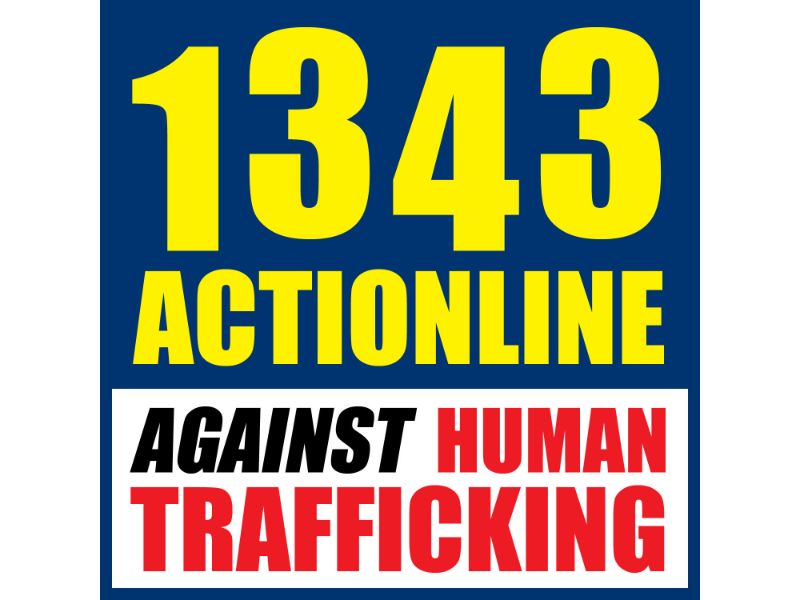Step 1: Caller accesses 1343 Actionline
Step 2: Receipt and Recording.
Call agent receives the call and requests the following information from the caller to be inputted into the prescribed database:
- name (full name if possible)
- the exact location
- contact number (for verification of information)
- assistance requested
Step 3: Call agent shall initially identify the type of call received, which may be classified as follows:
3.1 crisis calls: cases involving rescue, provision of shelter, and counseling
3.2 intel calls: cases that intend to provide verifiable information/tips on trafficking activities, suspected victims and suspected traffickers and referrals on other possible assistance for trafficking victims that may not yet be identified by the IACAT or its partners
3.3 general inquiries: cases that ask for assistance in:
3.3.1 verification of activities that are suspected to be related to trafficking activities (ex. recruitment agencies, job offers, immigration consultancies, travel documents, visa and passport, etc.);
3.3.2 case monitoring/ follow-up of trafficking case referred to IACAT or in the local courts;
3.3.3 process inquiries (ex. filing of case, directory of available services, directory of IACAT, witness protection, etc.);
3.3.4 reintegration program for trafficking victims; and
3.3.5 education materials and capacity-building of institutions including local government units and law enforcers
3.4 illegal recruitment
3.4.1 mail-order bride/groom scheme
3.4.2 domestic violence
3.4.3 government processes (POEA, OWWA, DFA, CFO, TESDA, etc.)
3.4.4 PESO services
3.4.5 Other Assistance-to-Nationals cases
3.4.6 Travel documents
Step 4: Calls that are classified as crisis calls will be immediately referred to the transaction/call to the following agencies/institutions for action:
4.1 Philippine National Police
4.2 National Bureau of Investigation
4.3 Ninoy Aquino International Airport (Anti-Human Trafficking Task Force)
4.4. Department of Social Welfare and Development
4.5 Philippine Embassies and Consulates
Calls that fall under the other three (3) categories shall be recorded in the database. Depending on the nature of the information provided or assistance required, said cases shall be referred to the following for action:
Intel Calls
- Commission on Filipinos Overseas
- Bureau of Immigration
- National Bureau of Investigation
- Philippine Embassies and Consulates
- Philippine National Police
General Inquiries
- Commission on Filipinos Overseas
- Bureau of Immigration
- National Bureau of Investigation
- Philippine Embassies and Consulates
- Philippine National Police
- Philippine Overseas Employment Administration
- Overseas Workers Welfare Administration
- DOLE-National Reintegration Center Office
- Department of Social Welfare and Development
- Department of Foreign Affairs
- Department of Justice
- DOJ-Operation Center
- International Justice Mission
- Visayan Forum Foundation
- Blas Ople Policy Center
Others
- Various government agencies concerned
- Non-government agencies concerned
Step 5: Verification and Action.
The government agency or institution to which the case was referred will retrieve the information sent on a regular basis. It shall review the information gathered from the referral and utilize all means to verify the details of the case. A turn-around time of 24 hours shall be observed for crisis calls and requests for general information and at least 48 hours for cases that require specialized intervention (i.e., repatriation, reintegration, assistance, verification, etc.)
Step 6: Monitoring and Databanking.
The CFO shall help monitor the case and provide feedback to the caller. Regular case conferences between the various government agencies shall be held to monitor the agencies’ response to the cases.
